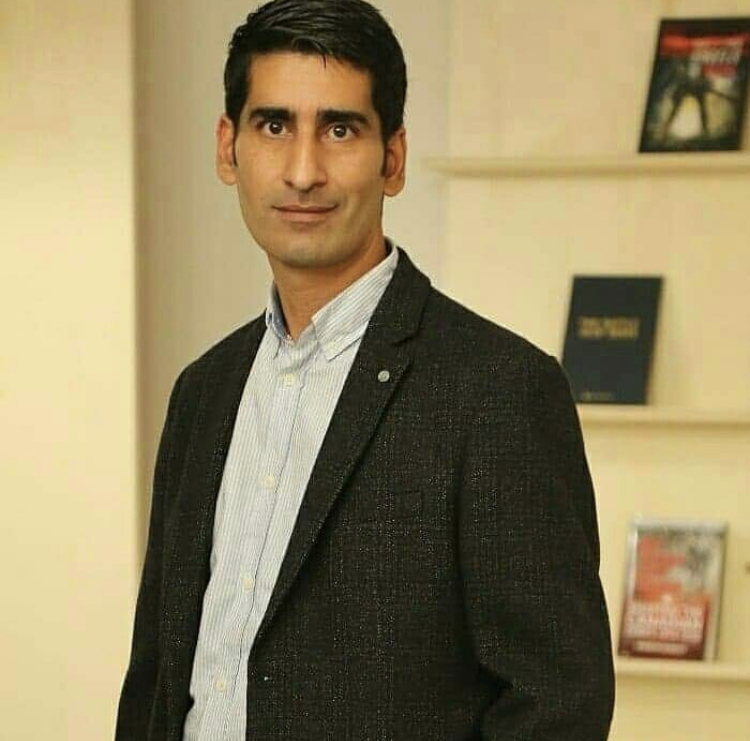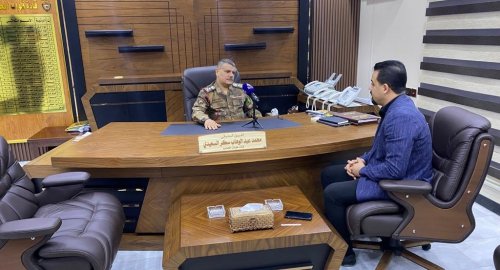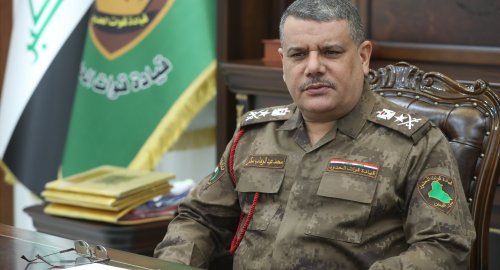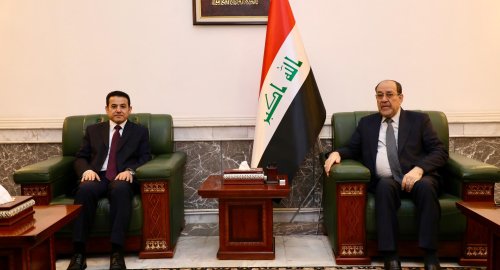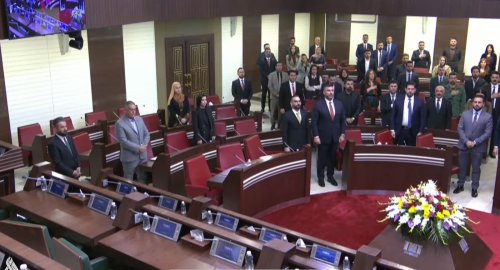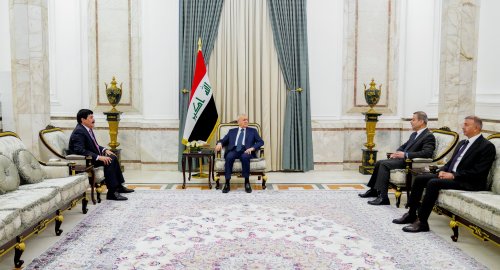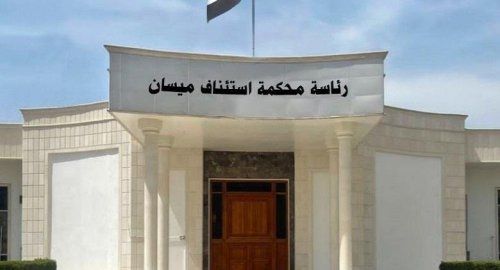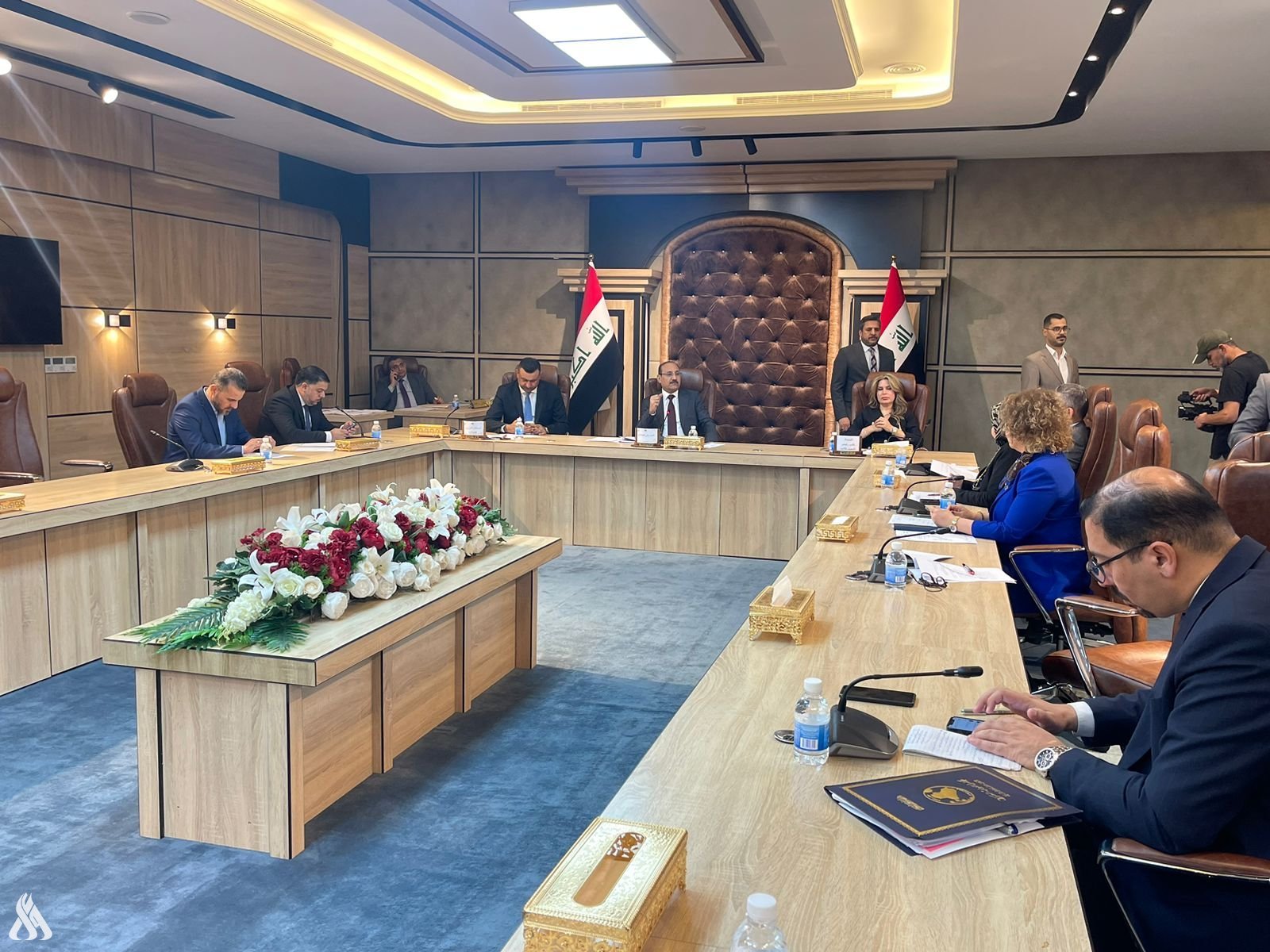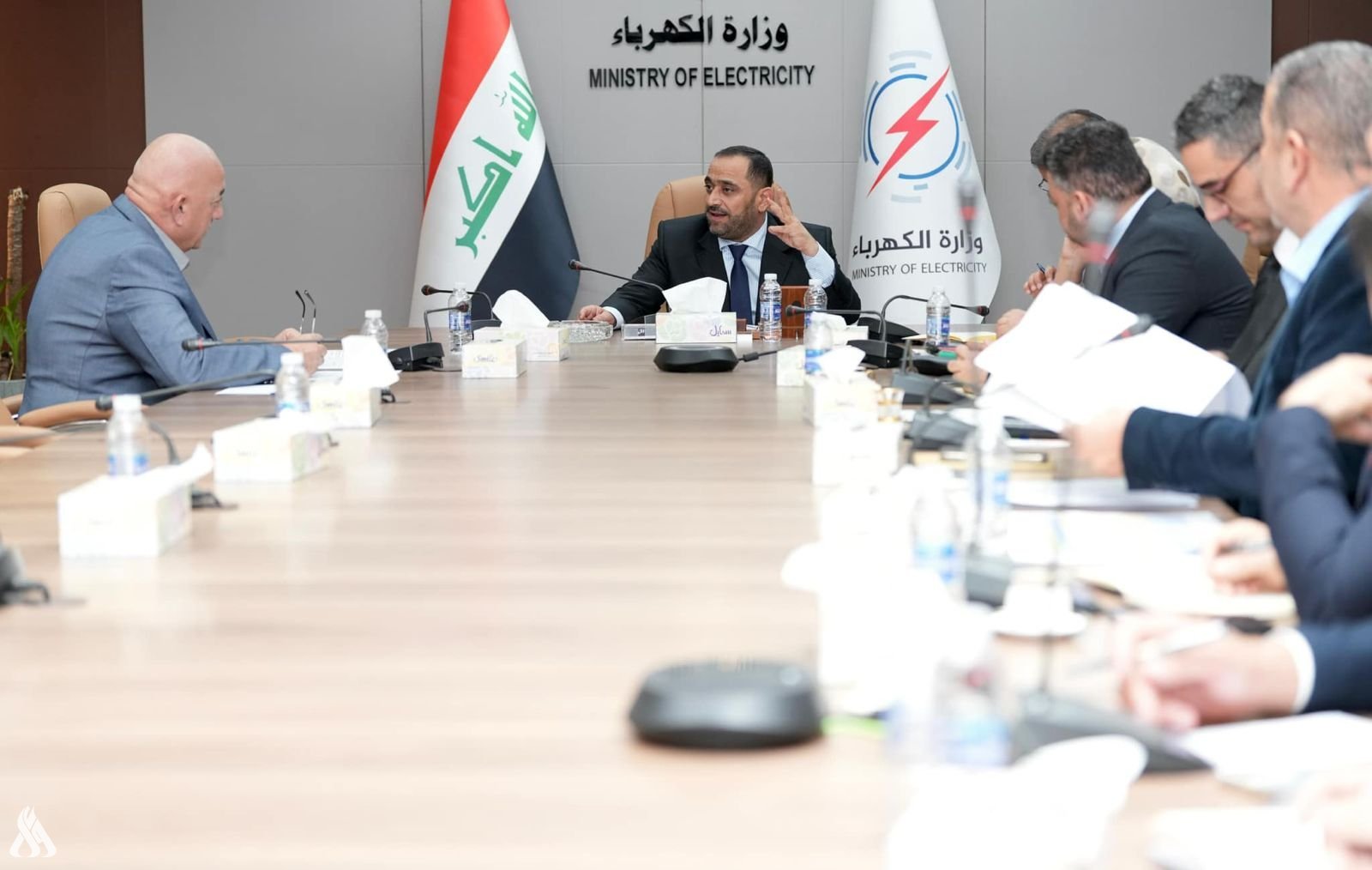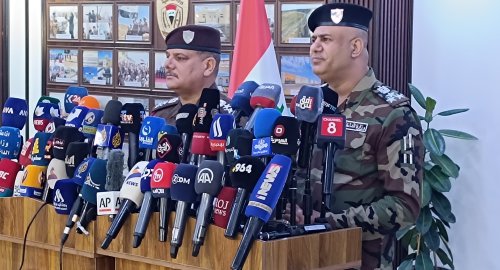
Interior: Our border with Syria is the most secure and impenetrable

- Today, 11:32
Baghdad-INA
Border Forces Commander Lieutenant General Mohammed Abdul Wahab Sakr Al-Saeedi announced today, Monday, that the borders are equipped with smart thermal cameras that operate 24 hours a day to monitor any movements, while the Ministry of Interior indicated that the Iraqi-Syrian borders are the best in terms of security, stressing that they cannot be penetrated.
The commander of the border forces, the legal team, Mohammed Abdul Wahab Sakr Al-Saeedi, told the Iraqi News Agency (INA): "There is great support from the Commander-in-Chief of the Armed Forces and from the Minister as well, and there are great measures from the leadership of the external regime forces, as we have reached an ideal result of controlling the Iraqi borders and ending the issue of infiltration and smuggling, and what we have achieved in controlling these borders did not exist in the history of the borders of the Iraqi state."
He added that "controlling the borders comes from a set of measures, the first of which was the establishment of a system of fortifications and barriers represented along these borders, an eastern trench three meters wide and three meters deep, and a barrier also three meters high, with inflatable wire barriers and (BRC) and a concrete wall that will reach 300 kilometers, and this is an ideal barrier used in advanced countries to control their borders."
He continued that "the points that are no more than one kilometer apart between the unit and the second, and this is the first time this has happened on our borders, as these borders have been completely covered by a smart monitoring system represented by thermal cameras, and their images are transmitted to the headquarters of the region and to the headquarters in Baghdad, where they monitor and document part of the Syrian and Iraqi depths, and there is no inch in these borders that is not covered by cameras," noting that "these cameras and the communication system are transmitted via an optical cable along the Iraqi-Syrian border."
He pointed out that "the first aspect included fortifications, a system of drones and thermal binoculars, while the other aspect is the size of the combat readiness of our sectors, as we have today combat units with excellent combat readiness, in addition to reserve border units of a large size ready to deal with any emergency situation, and the morale of our fighters and men is very high in defending their country from infiltration and smuggling, and they are facing a professional, national and religious duty."
He continued, "The joint operations adopted, through the army units and the Popular Mobilization Forces, the establishment of a second line in the Iraqi depth behind the border units to provide support and support for our border points and units in the face of any emergency situation."
Al-Saeedi stressed that “our borders with Syria are secure and there is no fear regarding these borders, and there is no comparison between the reality of the borders in 2014 and today, as there is a great intelligence effort from all agencies to support what is happening,” noting that “Iraq’s borders are secure and resistant to any attempt to violate the country’s sovereignty, and that the Iraqi security forces, apparatuses and armed forces are ready for any emergency, whether on the borders or otherwise.”
For his part, the official spokesman for the Ministry of Interior, Brigadier General Muqdad Miri, said during the conference: "The Border Guard Forces Command is one of the most important commands of the Ministry of Interior, as it represents a fundamental pillar in Iraq's security," indicating that "these forces have made exceptional efforts and achieved a qualitative leap in securing the borders, in light of the regional events witnessed by the region."
He explained that "the aim of this conference is to reassure public opinion, especially in light of some attempts to distort the facts and spread rumors about threatening Iraq's security and not fully securing the borders."
Miri added that "what is happening on the Iraqi borders is not only the result of today's efforts, but rather the result of planning and implementation since the formation of the current government and the arrival of the current ministry, as many important files were placed on the working table, most notably the files of drugs, borders and organized crime," stressing that "securing the Iraqi borders has reached an unprecedented level in the history of the Iraqi state."
Miri reiterated that "the Iraqi borders, which share six neighboring countries, are now witnessing the best security and fortification operations in the history of the Iraqi state."
He stated that "the efforts of the Border Guard Forces Command were clear, with the support of the Commander-in-Chief of the Armed Forces, Mohammed Shia al-Sudani, as the ministry has worked hard over the past two years to secure the borders, especially the Syrian borders," stressing that "the Iraqi borders with Syria are the best secured among all Iraqi borders."
He explained that "the fortifications include eastern trenches, a concrete wall, a bellows barrier, and experienced combat units from the Border Guard Forces represented by the Second Division and the Sixth Division, in addition to the support from the Iraqi army, the Popular Mobilization Forces, units from the Rapid Response Division, and the Federal Police Forces Command in the Ministry of Interior," noting that "the work to secure the borders technically and logistically is primarily due to the Border Guard Forces Command."
He stressed that "the Iraqi-Syrian borders are completely fortified and cannot be approached or penetrated, thanks to the fortifications and trained combat units."
KRG Parliament holds its first session
- politics
- 01:18
Iraq and UK sign security cooperation memorandum
- Security
- 24/11/26
Interior Minister receives his British counterpart
- Security
- 24/11/26
